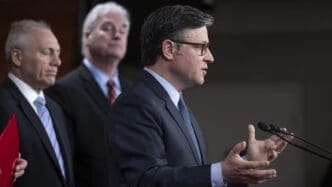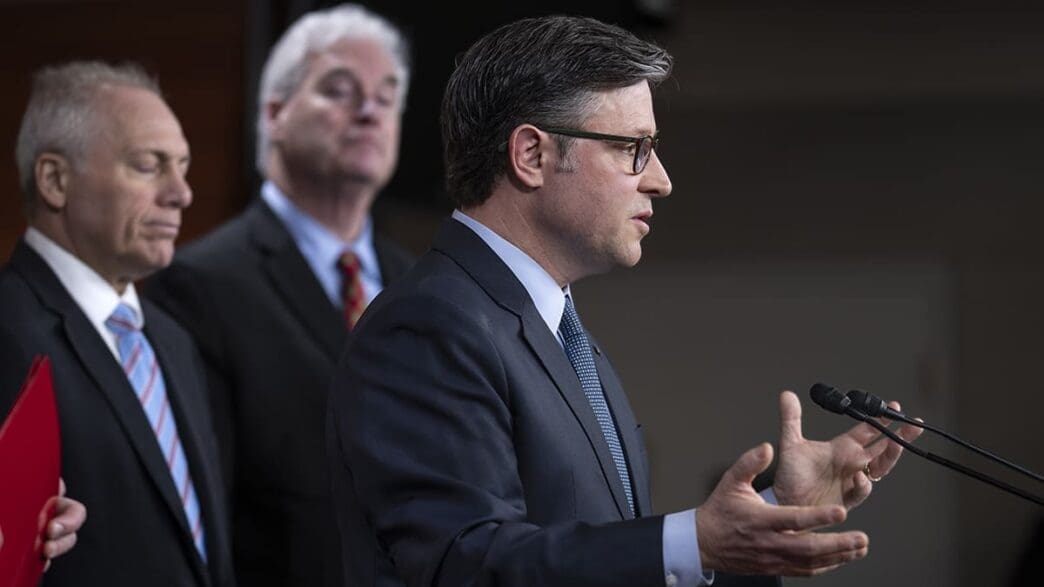In a critical move, the House decisively rejected a proposal supported by President-elect Donald Trump aimed at preventing a government shutdown, as a significant number of Democrats and Republicans stood against his last-minute demands.
The vote, conducted on Thursday evening amidst tensions and heated exchanges, could not attain the two-thirds majority required for approval. House Speaker Mike Johnson, despite the setback, expressed determination to seek alternative solutions before the looming deadline. The bill’s defeat, with 174 in favor and 235 against, marked a considerable failure for Trump and his associate, Elon Musk, who had opposed Johnson’s prior bipartisan agreement aimed at averting a shutdown.
Trump announced earlier that a new package had been developed to maintain government operations for an additional three months, alongside offering $100.4 billion in disaster aid and extending borrowing capabilities until January 2027. However, the newly crafted proposal faced significant pushback from Democrats, who were unwilling to concede to Trump and Musk’s stipulations. House Democratic Leader Hakeem Jeffries criticized the proposal as “laughable,” indicating strong opposition from his party.
The Republican-led effort to draft a new plan omitted numerous elements opposed by conservative members, such as a proposed pay raise for lawmakers. As discussions proceeded, it became evident that the revised proposal lacked the necessary support from both parties. Speaker Johnson faced mounting pressure from Trump’s calls for decisive action, risking his leadership position if he failed to comply with Trump’s demands.
Trump’s allies, including Musk, used social media to intensify resistance against the bill. The turmoil led to House Republicans, like Representative Steve Womack, acknowledging the difficulties that lay ahead in the upcoming congressional session. The White House had already begun advising federal agencies to prepare for potential shutdown scenarios, highlighting the urgency of the situation.
As the situation deteriorated, Trump publicly criticized those opposing his plan, including hardline Republicans. Representative Chip Roy openly condemned his colleagues for escalating the national debt, further intensifying the divide within the party. The proposed plan’s failure also dashed hopes of incorporating several bipartisan projects, such as rebuilding Baltimore’s Key Bridge, while excluding others like a land transfer necessary for a football stadium.
Senate Majority Leader Chuck Schumer emphasized the need to return to a bipartisan approach, highlighting the necessity for cooperation amid heightened tensions. The dramatic proceedings exemplified the challenges Trump might face as he prepares to enter the White House under a Republican-controlled Congress. Despite the House’s internal conflicts, Speaker Johnson remained tight-lipped about potential paths forward.
This episode underscored a familiar pattern from Trump’s previous term, during which he led the government into record-long shutdowns. As lawmakers prepared to leave for the holidays, the uncertainty around the funding bill’s status left federal employees and the public in a state of anticipation over the future of government operations.
The failure of President-elect Trump’s proposed funding bill has highlighted the fractured political landscape in Congress. As both parties grapple with internal discord and external pressures, the looming shutdown deadline underscores the urgent need for a workable solution. Whether a bipartisan agreement can be reached in time remains to be seen.
Source: Nbcmiami








